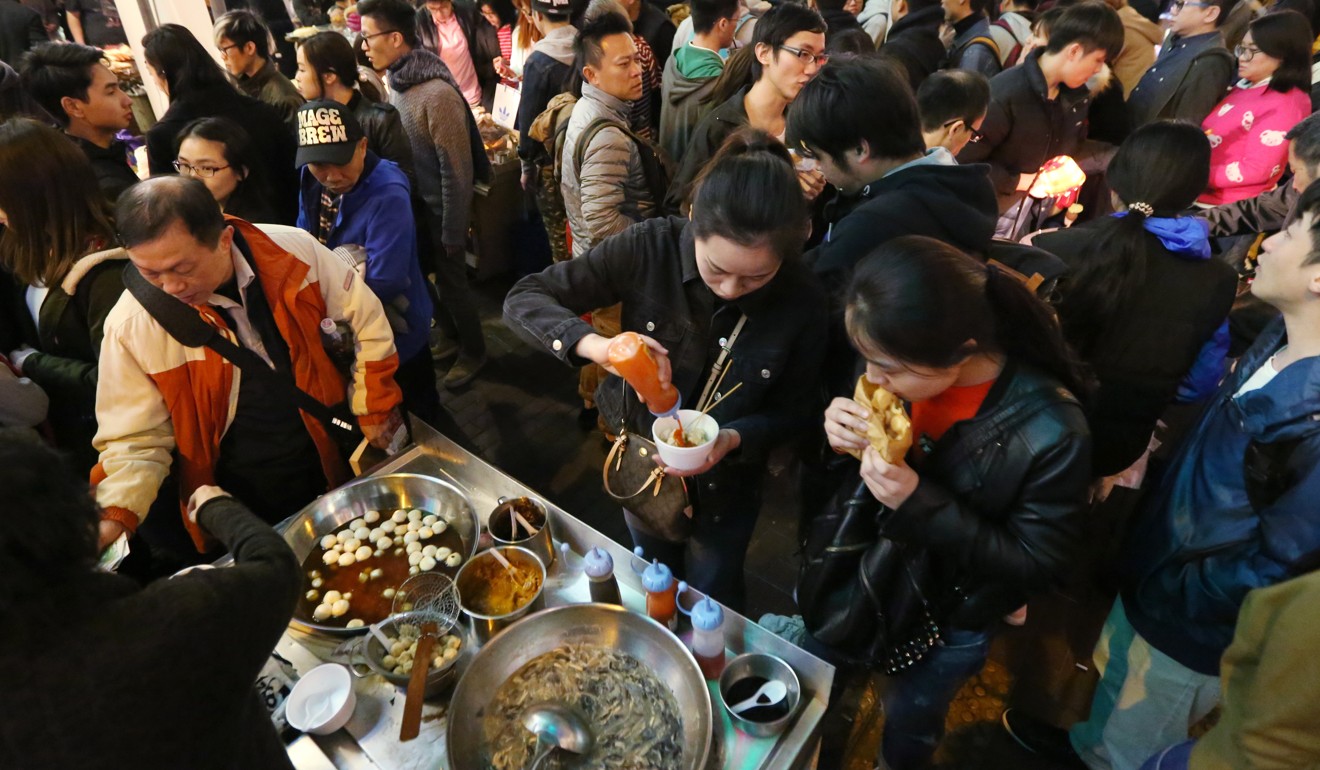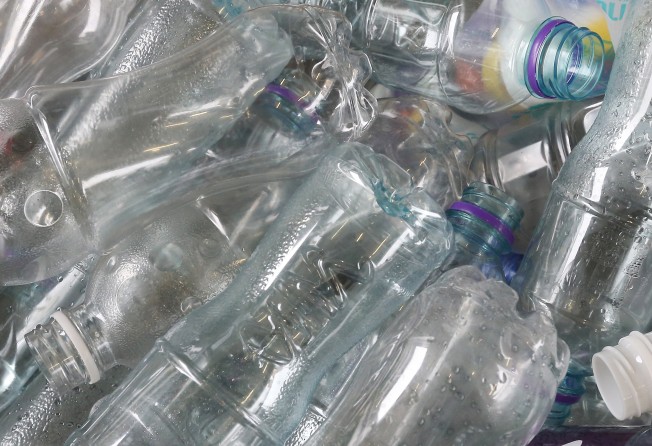
Online Letters, January 2, 2018

Hongkongers still lack awareness over plastic waste
There is far too much plastic waste in Hong Kong and it has become a serious problem.
With insufficient recycling, a lot of plastic is discarded along with non-recyclable refuse putting more pressure on our landfills which are nearing capacity. If we cannot cut back on the huge volumes of waste being dumped in these landfills, our waste crisis can only get worse. There could be calls for expanding existing or creating new landfills, but finding suitable locations is not easy.
Residents living near landfill sites complain about the smell some days and so people who learned that a new landfill was planned near their homes would certainly raise strong objections. One solution clearly is to reduce volumes of waste and that includes plastic.
Some eateries waste a lot plastic, especially large fast-food chains like McDonald’s. The government should be looking at this area and figuring out how it can work with these firms to try and cut back on, for example, the huge volume of plastic utensils that are discarded every day. These eateries could certainly try to reduce the number plastic bags and cups they give out to customers.
Another major problem is that there is a lack of awareness among citizens about the need, wherever possible, to recycle plastic waste. One green group claimed that the plastic recycling rate has actually decreased in Hong Kong showing that most people have no awareness about the plastic waste issue.
The government needs to promote the importance of recycling in order to raise public awareness and get citizens on board.
Heidi Wong, Kowloon Tong
Troubled teens need more help with mental health issues
Mental health is an issue that is often neglected, but more people are suffering from mental health conditions and it is becoming a serious problem in Hong Kong.
It affects all age groups, and many young people in schools and universities are suffering from depression. Their mental problems can be a consequence of getting poor exam results, when they compare themselves with fellow students who have done well. Often, if they are struggling academically, youngsters will feel isolated from their peers. This can make the depression they feel even worse.
This is a real problem in Hong Kong where the education system is so competitive, especially when it comes to the Diploma of Secondary Education and the battle to get an undergraduate place at a local university. The pressure is intense as young people feel that a degree is the best way to ensure they can have a job which pays a good salary. The pressure can be worse for students from low-income families, because of the obstacles they face, such as having enough money to pay for textbooks and a quiet place to study.
Some pupils in schools will also have serious mental health problems if they are victims of some kind of bullying, including cyberbullying. Some parents lack the sensitivity needed to help their children with these problems. They fail to spot the signs and offer the help and support their troubled sons and daughters really need.
Depression can manifest itself in various ways, with youngsters having sleep disorders, feeling anxiety and being short-tempered. In extreme cases they may self harm.
Teenagers are our future leaders and pillars in society. They will eventually hold down jobs and become parents. The government, parents and peers, need to be more aware of young people who have mental health problems and try to help them get better.
Cindy Ding, Tseung Kwan O
It is time for local schools to cut back on homework
A recent study in Guangzhou found that children on the mainland have a higher risk of obesity because of a lack of sleep and going to bed later.
Many children in Hong Kong have the same problem with not getting enough sleep and one solution, on both sides of the border, is for schools to cut back on the amount of homework they give out and also have fewer quizzes and tests. Some schools have so many of these tests in the hope that good test results will lead to increased banding for the school.
If they have to many assignments to do, this eats into young people’s spare time and they have to do a lot of work not just in the evenings, but even at weekends when they should be trying to find time to play with friends and be with their family. They need enough spare time to help them deal with stress which can get really bad.
Time could be allocated in class for pupils to do some of their homework and teachers could be on hand to help them when they experience difficulties. They are less likely to develop bad eating habits which cause them to be overweight or even obese if they are able to enjoy a relatively stress-free time at school.
It is also important for young people to practise a level of self-discipline. They should not use smartphones or tablets just before going to sleep. Too often youngsters have no self-control and may spend long periods on their mobile phones when they should be trying to get a good night’s sleep. For example, if youngsters start playing a computer game shortly before they are supposed to go to sleep and they finish one level, they will be tempted to go to the next level and keep doing that until it is late at night. This will make them tired the next day. Or if they watched a scary film just before going to bed they might find it difficult to sleep.
They need to spend less time on their computers and more time exercising which can help them to control their weight. Schools and parents need to seek solutions to this problem of obesity.
Donna Leung Chung-yu, Kwai Chung
Trump’s decision on Jerusalem should be wake-up call for Arab and non-Arab Muslims
The United Nations rose from the ashes of the second world war if not like a phoenix, then as the best hope of a recovering mankind. And for a time all was reasonably OK. But then human nature reverted to its mean. Country after country noticed that there were many more Arabs than Jews in the Middle East and Arabs had oil, a lubricant for great power dreams.
The British reasoned that the Balfour Declaration immunised them from much further concern with the Jewish people of Israel, while the French eagerly embraced Charles de Gaulle’s disengagement from such concerns. And so it went for decades, lip service paid to international ideals replaced by hard realities of Arab and great power realpolitik, the idea of a comprehensive two-state solution to the Palestinian problem barely surviving.
True to Israeli diplomat and scholar Abba Eban’s description in 1973 that the “Arabs never miss an opportunity to miss an opportunity”, peace overture after peace overture has been dashed by Palestinians in favour of intifada after intifada, the dream that Israel will disappear and be replaced by an Islamic state ever alive in the fevered Palestinian mind.
If President Donald Trump’s recognition of Jerusalem as the capital of Israel can jar Arab and non-Arab Muslim revanchists back to reality, then perhaps some good will follow and peace will not remain so distant.
Paul Bloustein, Cincinnati, Ohio, US

Government can let more hawkers set up stalls
I refer to the report looking back at service and product issues in Hong Kong in 2017 (“Food trucks, Uber, health scares and gym scams – rough year for Hong Kong consumers”, December 28). I agree that when you think about some of these issues it has been a difficult 12 months for consumers.
Two of the most publicised were the efforts by ride-hailing service Uber to be legalised in Hong Kong and the pilot scheme for food trucks. Then there were the various reports by the Consumer Council, as part of its continuing efforts to highlight concerns over substandard products, such as shampoo, and bring them to the attention of shoppers. The council undertakes tests of products, with its priority to reduce the risks faced by consumers.
For many of us 2017 was a struggle to make a living and meet basic needs, such as housing and food. For many citizens the heated debates over the food trucks and Uber, were of no interest. They had more pressing concerns that had to be addressed.
However, it seems clear to me that people would like to see greater leniency to encourage more traditional food hawkers to be able to operate in our streets. These hawkers are popular with tourists and locals.
Regarding Uber, the appropriate regulations should be put in place by the government so that it can operate and its passengers enjoy the same protection as they presently have in taxis and minibuses.
Kathy Fung Ka-ki, Kwai Chung